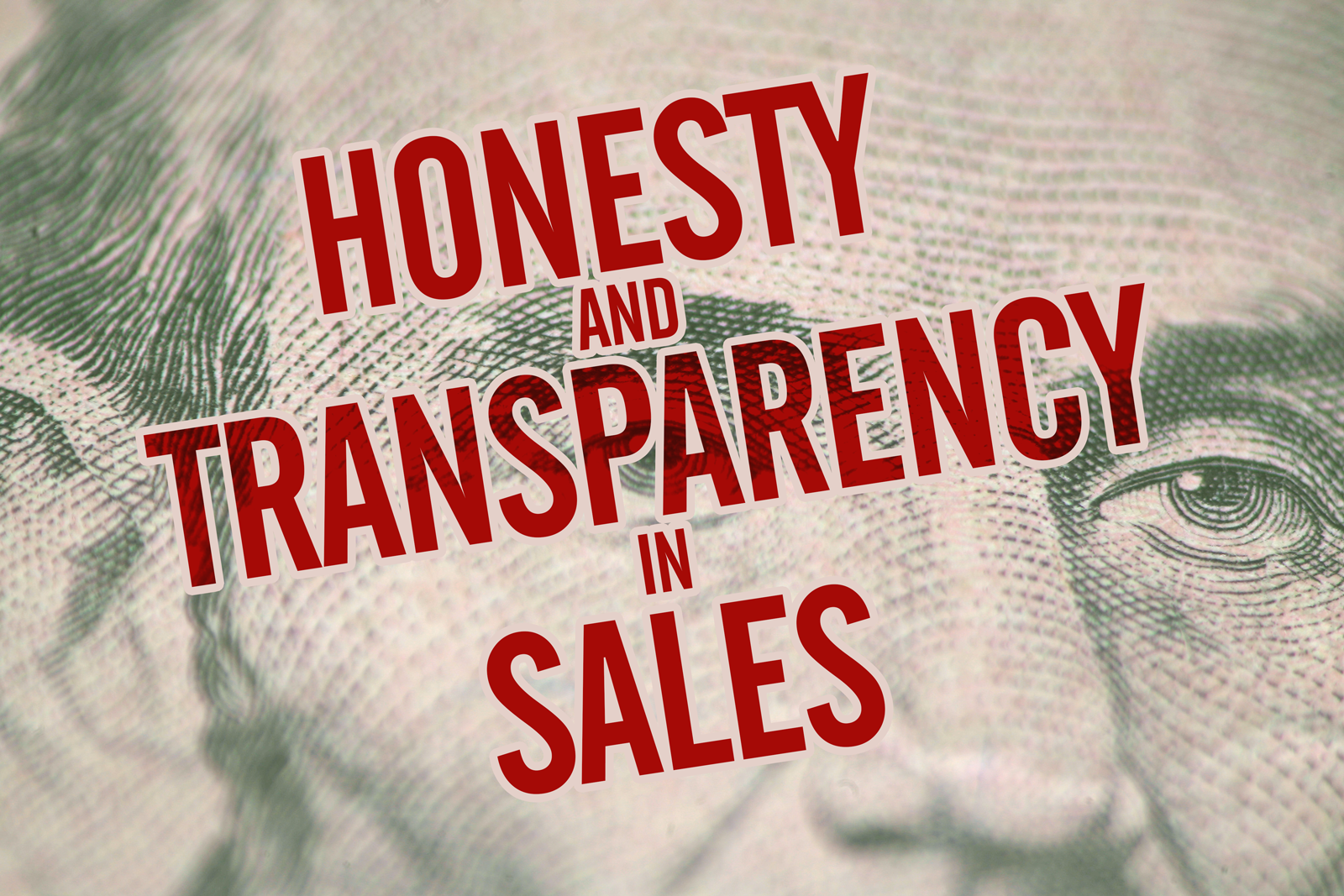For better or worse, people at most organizations spend a lot of time chasing more revenue, or, at the very least, more growth. That’s the way of the world these days; Amazon and Pandora, for example, don’t really make profit (per se), but their valuations are still strong. So, chasing revenue and growth is important — at the end of the day (a terrible business buzzword), that stuff will ultimately pay the bills.
Conventional logic would indicate that as you chase revenue and growth, the idea is to “up-sell” consumers: if your product has flaws, gloss ’em over. Get that stuff out there and get those sales numbers up, baby! (Nevermind the fact that you’re really not selling “product” at all.)
Honesty, then, would seem to have no real place in the sales ecosystem. Look at the cartoon above. That’s probably how you think about most salespeople, not just car salesmen. (Although the concept of a “used car salesman” has very specific connotations when you say it out loud.) Same thing: almost no websites that try to “sell” something are transparent, and the way we set up the B2B sales/marketing process is akin to stalking.
Basically, the concept of “selling something” has almost no overlap or resonance with the idea of “honesty.”
But … maybe it should.
Specifically, the researchers showed that an auction house made more sales when it disclosed more quality-related information about used cars up for auction, even if that information was negative.
“It seems like a very bizarre result. You tell people something that will decrease their valuations for a vehicle relative to a standard, and the next thing that happens is that, on average, you make more money.”
Now consider this article today in The Washington Post, about how affluent consumers are turning away from big, flashy logos — think Gucci — and want personalized, unique, trendy things. In a way that’s not any different than the last 100-200 years of history — rich people want unique shit, check — but it does kind of underscore this sea change going on right now where people are more interested in experiences and personalized concepts and openness and transparency, which haven’t necessarily been hallmarks of how we do business (or sales/marketing) for the past 50 or so years.
So this is an interesting concept overall: what if you put aside all the bullshit (“It’s just a little chipped paint”) and replaced it with honesty and transparency over the product/end sale item? If doing that could make you more money, wouldn’t you do it? You probably would, right? (Who doesn’t like more money?)
Here’s why the whole thing might be working, psychologically:
“So the role of information here isn’t necessarily to tell you whether the car is good or bad. Instead, the information allows you to decide what kind of car you want to bid on in the first place. The disclosure helps people select and do what’s most relevant for them in these situations.”
See, that’s important too: we live in an era of increasing income inequality. (Hard to argue that, IMHO.) There are very clearly “haves” and “have-nots” in the world, and especially the first world, right? So maybe transparency in the sales process becomes a self-selecting mechanism, or a “matching mechanism.” It allows the people with less resources to say “OK, that’s not a perfect product, so that’s the sale I will pursue.” A person with a lot of assets doesn’t need to pursue that product. It’s the same with vacations: some people get the $2,500 all-inclusive, and some people spend $15,000 to go to Italy. It’s based on (a) what you have and (b) what you value, which is the price/value equation at the heart of most things you do, honestly.
But still, if you’re in sales … put aside what you know and what you’ve learned and been taught and think for a second about using “transparency” as a tactic. It might be crazy enough to work.



Reblogged this on Gr8fullsoul.